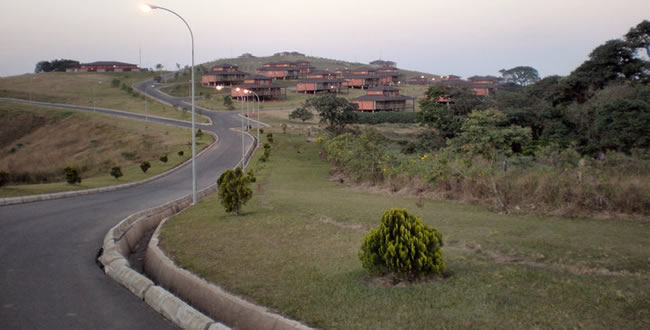
Latitude: 6.6682 Lat (DMS) 6° 40' 6N
Longitude: 9.1645 Long (DMS) 9° 9' 52E
Elevation (Feet): 830
Population Est.: 196680
Zipcode: 552101
History
Obudu is located in Northern part of Cross River State, Nigeria. The Obudu people historically originated from northern senatorial district of control Africa, who left South Africa during the history period, known as the “great Trek” from central Africa. The Obudu moved and settled in Western Cameroon, where the remnants of the Obudu people are still under the Cameroon government. The town of Obudu is downstream from the Obudu Dam, which also provides recreational facilities. The Community comprises several sub-communities that speak different dialects. Bete is the dialect that is spoken by a majority of the inhabitants of the area. Bete is widely understood and spoken across the spectrum of other sub-communities in the region. English is the official language of communication in the region and Nigeria as a whole, the literacy rate among the young ranks very high in the state and remains on the rise.
The migration from Western Cameroon to Eastern Obudu took place around the 19th Century as a result of increase in population and desire to acquire fertile lands the early settlement were in family the people of Obanliku, Libang Bedia Ohung, Betukevel, Otia and Ogborogbod Hills.
In 1974 Obudu was given a local government on May 13th during the administration of Genera l Olusegun Obasanjo Armed mainly at unifying the Hitherto Multiple system of local government in practical terms, correct the problems.
Confronting these councils
During the time of administration of General Obansanjo the Fourth Military coup in Nigeria although Abortive, took place on 13th February 1976, the coup was led by Lt Major Bukar Sukar Dimka, and it claimed the like of the head of state.
The people that make up Obudu local government area as mentioned earlier since pre-historical time, been regarded as one community sharing the same common feature like linguistics, land, socio-political, culture and most importantly the same historical background.
Obudu is known for its hilly terrain and the cattle ranch has the highest elevation in the region. The cattle ranch has beautiful weather, a breathtaking natural landscape and outstanding recreational facilities by the standard of the nation. The ranch is an ideal location for local and international vacationers, hosting seminars and conventions. The plateau (the cattle ranch) offers ample opportunity for visitors to be in touch with nature and observe some aspects of Mother Nature such as sunset and sunrise, and the panoramic view of some villages far and below the plateau. For inquisitive visitors, the ranch offers a broad range of exotic meal options to select from. While you are there, do not forget to try Edikang Ikong, which is the ambrosia among the plethora of soup choices. It is delectable and very satisfying. The ranch, in a way, is a microcosm of a world of elegance and culinary delight. The inhabitants of the plateau are the Bechebe people.
The economy of the Obudu area is predominantly reliant on farming for food and cash crops. The soil is naturally fertile for agriculture and the people take a good advantage of it. Up until the late seventies, the people of Obudu were well versed in various farming techniques that made them renown in the production of yams, cassava, potatoes, rice, millet, sesame seeds, pepper, locust beans, black eye beans, garden egg, plantain and bananas. The agrarian economy has remained stagnant with regard to making a transition to mechanized methods including better means of food processing and preservation. Because of poor food preservation methods, cash crops are harvested and brought to the market at the same time by the farmers; thus keeping their prices low for the buyers at the expense of the producers.
Some interesting things about Obudu
- Obudu local government has its headquarters at Obudu
- Cattle Randu dam
- Federal college of education
- Obudu Cattle Ranch
- Obudu Mountain Resort
- Private polytechnic Obudu
- University
Banks in Cross-River
Brief History of Cross-River
Business and Economy
Festivals and Carnivals
General and Teaching Hospitals
Hotels and Guest Houses
Local Governments & LCDAs
Cross-River State Ministries Agencies and Parastatals
Police Stations
Popular Markets
Prominent Towns
Restaurants, Bars, Night Clubs
Shopping Malls
Cross-River State Executive Council
Tourist Attractions
Traditional Rulers




